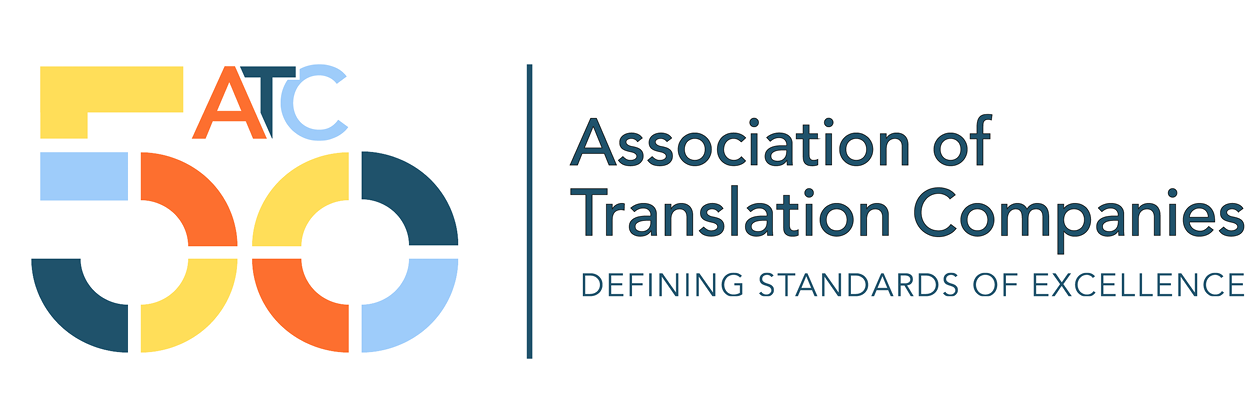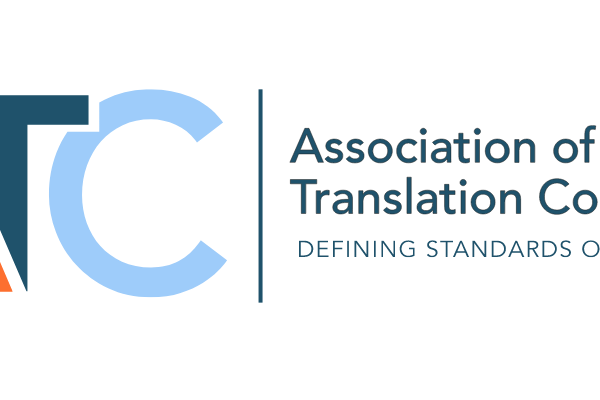February 2026 The ATC’s regular member benefits newsletter introduces you to the support, events and guidance you need to do better…

The UK switches to a new post-Brexit immigration system in January 2021, and EU citizens must apply to live and work in the UK through the same immigration routes as the rest of the world.
This report from the ATC’s Chief Executive Officer Raisa McNab looks at the latest information from the UK Government on the new points-based immigration system, and analyses its implications to language service companies in the UK.
The ATC and its members have actively campaigned to secure continued access to the linguistic skills of translators, interpreters and multilingual staff to language service companies and the UK’s public and private sectors. Our aim is to ensure that the route to these skilled roles remains accessible post-Brexit.
The tail end of the transition period
We are now nearing the end of the Brexit transition period when the EU’s freedom of movement comes to an end in the UK.
Until the end of 2020, EU nationals may still continue to come to the UK to live and work. Any EU nationals who are in the UK before the end of 2020 are eligible to apply for Settled Status.
Post-Brexit points-based immigration system
For the language services industry in the UK, the main immigration route for employing staff from outside the UK will be the Skilled Worker Route. This route carries the full weight of requirements and fees, as outlined below. There are also two possible routes for shorter-term employment, which may be interesting to language service companies: the Graduate Route and the Youth Mobility Scheme. There are no routes for freelance translators and interpreters to enter the UK.
Skilled Worker Route
The Skilled Worker Route effectively replaces the UK’s existing ‘Tier 2’ immigration system.
The good news is that there is no cap on the number of migrants who may enter the UK through the Skilled Worker Route, and prospective employers do not need to advertise for a vacancy for a set time in the UK before they open it up for international recruitment. However, there are a number of requirements that a non-UK applicant and their prospective employer must meet, and costs associated with employing a worker through this route.
Any prospective UK employer wishing to recruit workers from outside the UK must apply for a sponsorship licence. Sponsors must undergo stringent checks and renew their licence every four years.
The Skilled Worker Route has a points-based system with a number of tradeable points being awarded to prospective workers based on having a job offer, the skill level of the job, English skills, salary, education at PhD level, and whether the job has been designated as a shortage occupation.
Skilled workers have the right to bring dependants: spouses, partners and children. In general, dependants have near full access to the UK labour market and can work at any skill level.
How much will it cost?
The costs associated with employing a skilled worker vary depending on the size of the employer and the length of the visa. All costs are liable to change.
The below chart is a rough guide to the basic costs of worker and sponsor fees over 3 and 5 years. These costs exclude any other incidental costs and they also exclude costs relating to legal advice which may be needed to obtain a sponsorship licence in the first place.
For the worker (no dependants)
| Fee Type | Fee | Cost Over 3 Years | Cost Over 5 Years |
|---|---|---|---|
| Visa Application | £610 / 3-year visa £1220 / 5-year visa |
£610 | £1220 |
| Health Surcharge (Access to NHS) | £624 per year | £1,872 | £3,290 |
| Minimum Cost | £2,482 | £4,340 |
For a small company (< 50 employees and turnover <£10.2 million)
| Fee Type | Fee | Cost Over 3 Years | Cost Over 5 Years |
|---|---|---|---|
| Sponsorship licence fee | £536 / 4-year visa | £536 | £1,072 |
| Certificate of sponsorship | £199 | £199 | £199 |
| Immigration Skills Charge | £364 per year | £1,092 | £1,820 |
| Minimum Cost | £1,872 | £3,290 |
For a larger company, or a skilled worker bringing dependants, the associated costs will be higher.
Points and salary thresholds
The Skilled Worker Route comprises a system made up of points linked to mandatory criteria, salary, and the job role.
Each applicant must first score 50 mandatory points from having a job offer from a licenced sponsor at the required national qualifications level 3, and fulfil the English language requirements.
Further to the 50 mandatory points, each applicant must score a further 20 points to be granted a visa. For typical language industry roles, this is likely to be either through their salary or by being a ‘new entrant’ to the market.
For translators and interpreters under SOC code 3412, the relevant minimum salary for the points-based system is £25,600, as is the ‘going rate’ for the profession.
For project coordinators under SOC code 3539, the relevant minimum salary for the points-based system is £25,600, and the ‘going rate’ for the profession is £23,300.
The below table illustrates how different salaries affect the points required for these roles.
| Salary | Additional Points |
|---|---|
| £25,600 | 20 |
| £23,040 | 10 |
| £20,480(floor salary for the system | 0 |
Besides salary, there are a few other characteristics which may offer additional points.
| Characteristic | Addtional Points |
|---|---|
| New entrant | 20 |
| PhD in a subject relevant to the job | N/A for this profession (otherwise 10) |
| Job in a shortage occupation | N/A for this profession (otherwise 20) |
In practice, to employ a non-UK translator, interpreter or project coordinator:
- They must be paid at least £25,000; or
- Be classified as ‘New Entrant” and be paid at least £20,480.
New entrants
New entrants to the UK labour market are subject to lower salary thresholds for three years. Migrants will be defined as new entrants if they meet one of the following requirements:
- They are switching from the Student or Graduate route to the Skilled Worker Route;
- They are under the age of 26 on the date of their application; or
- They are working towards recognised professional qualifications or moving directly into postdoctoral positions.
New entrant translators, interpreters and project coordinators are subject to the floor salary rate of £20,480, which is sufficient to earn them the additional 20 points required on top of the mandatory 50.
Any new entrant coming up to the end of their three years of reduced salary requirement must then be able to earn the additional 20 points elsewhere – in our example cases, from a salary of at least £25,600.
Graduate Route
A new post-study graduate route will be launched in the summer of 2021 to provide international students the opportunity to stay in the UK to work or look for work after they graduate. Undergraduate and master’s degree students will be able to stay for two years under the route, whilst PhD students will be able to stay for three years.
The Graduate Route is an unsponsored route. All successful applicants will be granted a one-time non-extendable leave period on this route. At the end of the Graduate Route visa, the applicant may apply to switch to a Skilled Worker or other immigration route, subject to meeting the visa requirements.
How much will it cost?
As with the Skilled Worker route, the applicant must pay an application fee and the immigration health charge. However, their employer does not require a sponsorship licence, and they do not need to pay the immigration skills charge.
Youth Mobility Scheme
The Youth Mobility Scheme (YMS) is a temporary route providing young people from participating countries with an opportunity to experience life in the UK, enabling them to work and travel for up to two years. The YMS is a reciprocal scheme, with its terms negotiated and agreed between two countries, which enables young British citizens to benefit from similar opportunities overseas.
The UK currently operates eight YMS arrangements with Australia, Canada, Japan, Monaco, New Zealand, Hong Kong, Republic of Korea and Taiwan. Applicants aged between 18 and 30 may apply to the YMS scheme, which has a cap on the numbers.
How much will it cost?
As with the Skilled Worker route, the applicant must pay an application fee and the yearly immigration health charge. However, their employer does not require a sponsorship licence, and they do not need to pay the immigration skills charge.
What does this all mean for UK language service companies?
These new immigration routes will from 2021 be the primary routes for recruitment outside of the UK.
Although the Skilled Worker Route offers the longest and most stable recruitment prospectives, it also carries the most administration and cost for both the employer and the worker.
For UK language service companies, it may very well be that the Graduate Route and the Youth Mobility Scheme will in the future offer a springboard for entry-level roles to allow both the employer and the worker to establish a good working relationship in the two years allowed, before a longer-term switch to the Skilled Worker Route.
Read more about the specific requirements of the new points-based system here.
About the ATC’s immigration lobby
Over the course of our campaign, the ATC and its members have lobbied for the professions of translator and interpreter to be included to the Shortage Occupation List (SOL), and submitted evidence to the Migration Advisory Committee’s consultations, the latest of which is due to be published in the autumn of 2020.
Language services are essential for international commerce. British exporters make use of a wide range of translation and interpreting services to bring their products and services to foreign markets successfully, ultimately contributing to the UK’s competitiveness in international markets.
In our linguistically diverse society, translation and interpreting services also underpin the fair and equitable treatment of speakers of more than 300 different languages. The services of the UK’s 1,600 language service companies ensure that the justice system, police and the national health service have access to the information they need, when they need it, and whichever language they need it in.
By its very nature, the language services industry needs mother tongue speakers of a wide range of different languages to provide the highest quality translation and interpreting services, with linguists recruited from outside the UK. Whilst native British linguists can supply some of the required language skills, there is a critical need to safeguard language service companies’ access to mother tongue linguists required in the years ahead.
Translators and interpreters are in a completely unique position within the UK labour market. The language services industry intrinsically requires migrants, and its existing and expected skills shortages cannot be offset through domestic training, but require separate recognition and consideration from all other professions.

